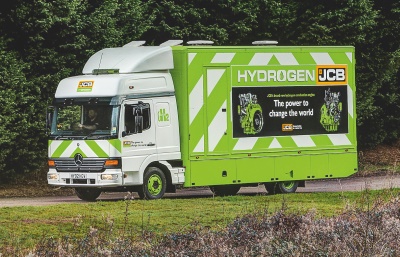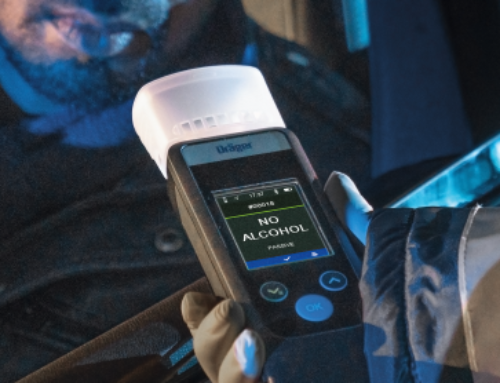JCB completes first hydrogen truck conversion
 Construction and farm equipment manufacturer JCB has successfully installed its hydrogen-powered internal combustion engine in a 7.5-tonne Mercedes Atego truck.
Construction and farm equipment manufacturer JCB has successfully installed its hydrogen-powered internal combustion engine in a 7.5-tonne Mercedes Atego truck.
The retrofit was completed in just days, and one of the truck’s first test drivers was JCB chairman Anthony Bamford, who has been spearheading the company’s £100 million hydrogen project.
The internal combustion engine used in the truck is the same as those already powering JCB prototype hydrogen construction and agricultural machines.
Lord Bamford said: “This is a giant leap forward for JCB and the rest of the world because we all have one goal: to reduce emissions. The hydrogen engine we have installed in the truck is the same as those already powering prototype JCB machines, so there is no reason we should not see hydrogen combustion engines in vehicles used on the roads in the future, including cars.”
The British company has already manufactured 50 hydrogen internal combustion engines in a project involving 150 engineers and they now power prototype JCB backhoe loader and Loadall telescopic handler machines. The truck at the centre of the latest project was formerly diesel-powered and the switch to hydrogen is a breakthrough which underlines that this form of power could represent a quick way to reach global CO2 emissions targets.
JCB developed the world’s first working hydrogen-powered construction and agricultural machines. Last year JCB revealed another industry first – a mobile hydrogen refueller which provides a quick and straightforward way to refuel machines on site. JCB’s hydrogen internal combustion engines are manufactured at JCB Power Systems in Derbyshire.
Meanwhile, JCB has also obtained permission to use its hydrogen-powered backhoe loader on UK roads. Chairman Lord Bamford said: “Securing this vehicle special order from the Department for Transport is an important first step in getting JCB machines that are powered by hydrogen combustion engines to and from British building sites using the public highway. It’s an endorsement that JCB is on the right path in pursuit of its net zero ambitions.”












